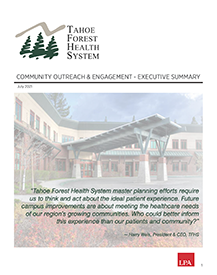Sports Fueling for High School Athletes
Hi, my name is Brett Sarnquist. I'm one of the wellness dietitians here at Tahoe Forest Health System and just wanted to talk a little bit today about fueling high school athletes for performance. It can be definitely a little bit of a fraught issue and I know you've probably seen some of the other videos with some of the other dietitians and doctors here at the health system, but today what I'm really going to focus on is the actual performance aspect of nutrition. And so with high school athletes, I really like to do two main things. The first is to keep it focused on performance and the second is to keep it simple. And so when I say keep it focused on performance, what I mean is really try to emphasize the positive aspects of nutrition and the performance enhancing aspects of nutrition as opposed to, you know, thinking about weight loss or restriction or anything like that. We're really focusing on the ways that adding nutrition, especially the good nutrition, can benefit us. And I really like to emphasize benefit the team as well. It's not just about the individual. And I think that's actually probably the healthiest way to talk about it is to talk to the whole team and emphasize kind of the power of nutrition to make team better.
So, you know, when I say keep it focused on performance, I think one of the things I like to to really emphasize is just that performance nutrition doesn't have to be complicated, but it does have to be consistent. And so, I like to emphasize, you know, eating across the day, meals and snacks. And then balance is probably the other big word. So, that means making sure that your athletes are getting a balance of nutrients. That's carbohydrates, that's protein, that's fat. There's always trends, you know, available out there, you know, towards low carbohydrate or super high protein and all these other things. But just remember that kind of a mix of all the nutrients and spread evenly across the day can give your athletes good steady energy and then help them heal, help them perform, help them kind of stay at their highest level. Nutrition can definitely get complicated, but you know, try to avoid words like bad, good, unhealthy, healthy, and just be aware of your own biases, too. A lot of us learn things, you know, back in the day or back when we were athletes. Then we bring some of that baggage with us. But try to kind of let that go and just focus on the really simple things. Making sure they're fueled, making sure it's a good balance of nutrients, and making sure that, you know, they feel supported and they realize this is a team thing, not just an individual thing.
Thinking specifically about nutrition during the day, I kind of have a five-part, I wouldn't call it a checklist, but checklist, that I use to help athletes stay focused. And these are ones focused mainly on the needs of high school athletes in particular. First thing on that checklist I always emphasize is eat breakfast. Doesn't have to be a lot. Doesn't have to be a formal meal. It doesn't have to be anything even special, but just eat something. Whether that's a little bag of homemade trail mix that you portioned out for yourself, maybe some Greek yogurt, some fruit and nuts mixed into it, maybe just bagel with, you know, smoked salmon and cream cheese if you're more of the savory type. It can be a really traditional breakfast, but it doesn't have to be. Making something like a big batch of muffins once a week so you have that grab and go is available would be perfect. But just make sure you do something in the morning and encourage athletes to have a good solid breakfast.
Second is on game days or competition days, emphasize the importance of getting a meal about 3 to 4 hours ahead of time in order to kind of top off that fuel tank. Doesn't have to be a big meal and it should be something kind of light and easy to digest and some food that they're familiar with. No experimenting on game day. And just make sure they get that meal in three or four hours. Give it time to digest and kind of top off those stores. Another thing I like to emphasize, especially if athletes have skipped lunch or if they've had an inadequate lunch, is making sure that they have a good light snack about 60 to 90 minutes before practice or games. And it doesn't have to be anything big. We're just talking about a bar, piece of fruit, you know, a little smoothie, something like that. But something to kind of top off those energy stores and make sure that that when they're coming into practice or when they're coming into that game, they've got that energy available and ready to go and they're not starting off for the practice depleted or hungry before they even get there.
During practice, I like to focus on having fluids available. Doesn't have to be a sports drink or something with sugar, but just water is fine. And encourage athletes to drink to thirst. I wouldn't push any athletes to drink and I wouldn't say, you know, set number of goals or anything, but have it available and make sure they know that there's time when they get thirsty or when they're feeling overheated to make sure that they can drink to their own level of thirst and encourage that without necessarily setting a specific number goal.
And finally, and also maybe most importantly for future performance and recovery, I like to ensure that all my athletes always have a snack immediately after workouts, especially anything hard or intense. You're doing double days, if you're doing intervals, if you're doing races, things like that, make sure you've got that nutrition lined up, ready to go, and aim for that 20 to 30 minute window immediately after practices and games to kind of replenish and rebuild what you need there. So, to reiterate, when you're emphasizing power of nutrition for high school athletes, keep it focused on performance and keep it simple. So, eat well, play well, stay healthy, and thank you for watching.
Bret Sarnquist, MPH, RDN, LDN, Outpatient Wellness Dietitian at Tahoe Forest Health System, shares practical advice on fueling high school athletes for performance. Bret highlights strategies to support athletes throughout the day, such as eating breakfast, timing meals before games and practices, staying hydrated, and replenishing energy after workouts.
Learn more about athlete sports fueling.
October 14, 2025
Recent News
Categories
- * Featured
- Anniversary
- Board of Directors
- CA Office of the Governor
- Children's Health
- COVID-19
- Employee Highlights
- Gene Upshaw Memorial Tahoe Forest Cancer Center
- Health & Wellness
- Health System Foundation - Giving
- Incline Village Community Hospital
- Informational Brochures & Guides
- Nevada County Public Health
- Orthopedics
- Patient Success Stories
- Stay Healthy: Facts About COVID-19
- Tahoe Forest Health System
- Women's Health




